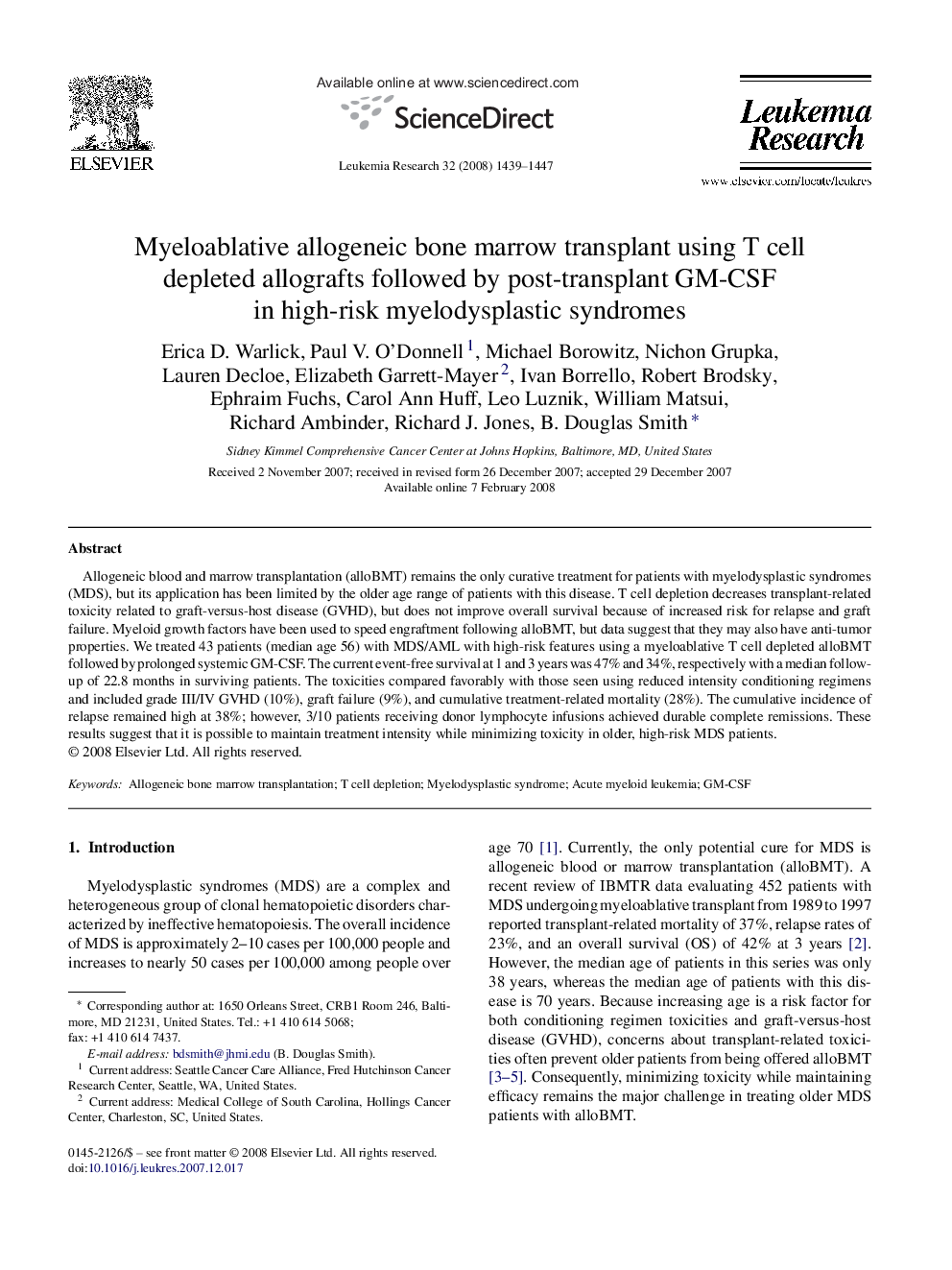| Article ID | Journal | Published Year | Pages | File Type |
|---|---|---|---|---|
| 2138964 | Leukemia Research | 2008 | 9 Pages |
Allogeneic blood and marrow transplantation (alloBMT) remains the only curative treatment for patients with myelodysplastic syndromes (MDS), but its application has been limited by the older age range of patients with this disease. T cell depletion decreases transplant-related toxicity related to graft-versus-host disease (GVHD), but does not improve overall survival because of increased risk for relapse and graft failure. Myeloid growth factors have been used to speed engraftment following alloBMT, but data suggest that they may also have anti-tumor properties. We treated 43 patients (median age 56) with MDS/AML with high-risk features using a myeloablative T cell depleted alloBMT followed by prolonged systemic GM-CSF. The current event-free survival at 1 and 3 years was 47% and 34%, respectively with a median follow-up of 22.8 months in surviving patients. The toxicities compared favorably with those seen using reduced intensity conditioning regimens and included grade III/IV GVHD (10%), graft failure (9%), and cumulative treatment-related mortality (28%). The cumulative incidence of relapse remained high at 38%; however, 3/10 patients receiving donor lymphocyte infusions achieved durable complete remissions. These results suggest that it is possible to maintain treatment intensity while minimizing toxicity in older, high-risk MDS patients.
